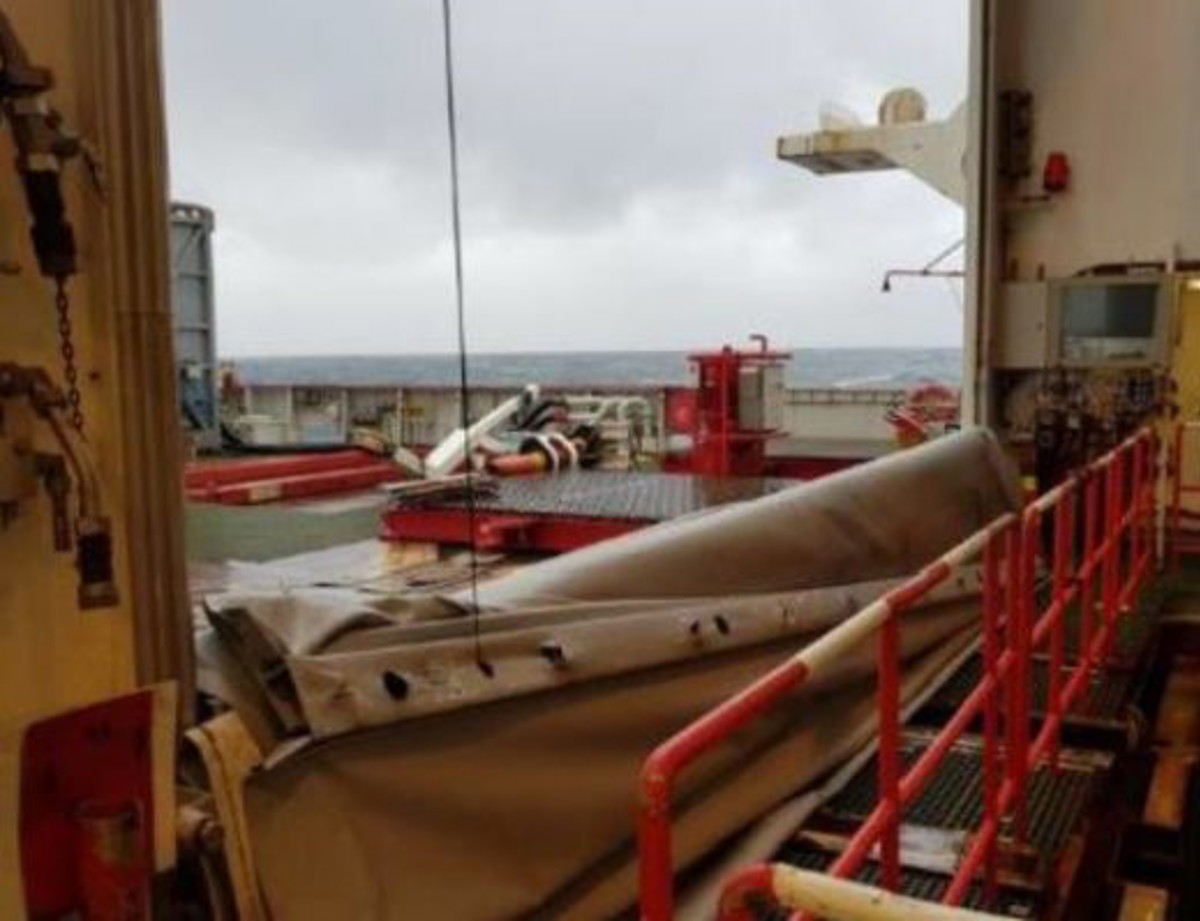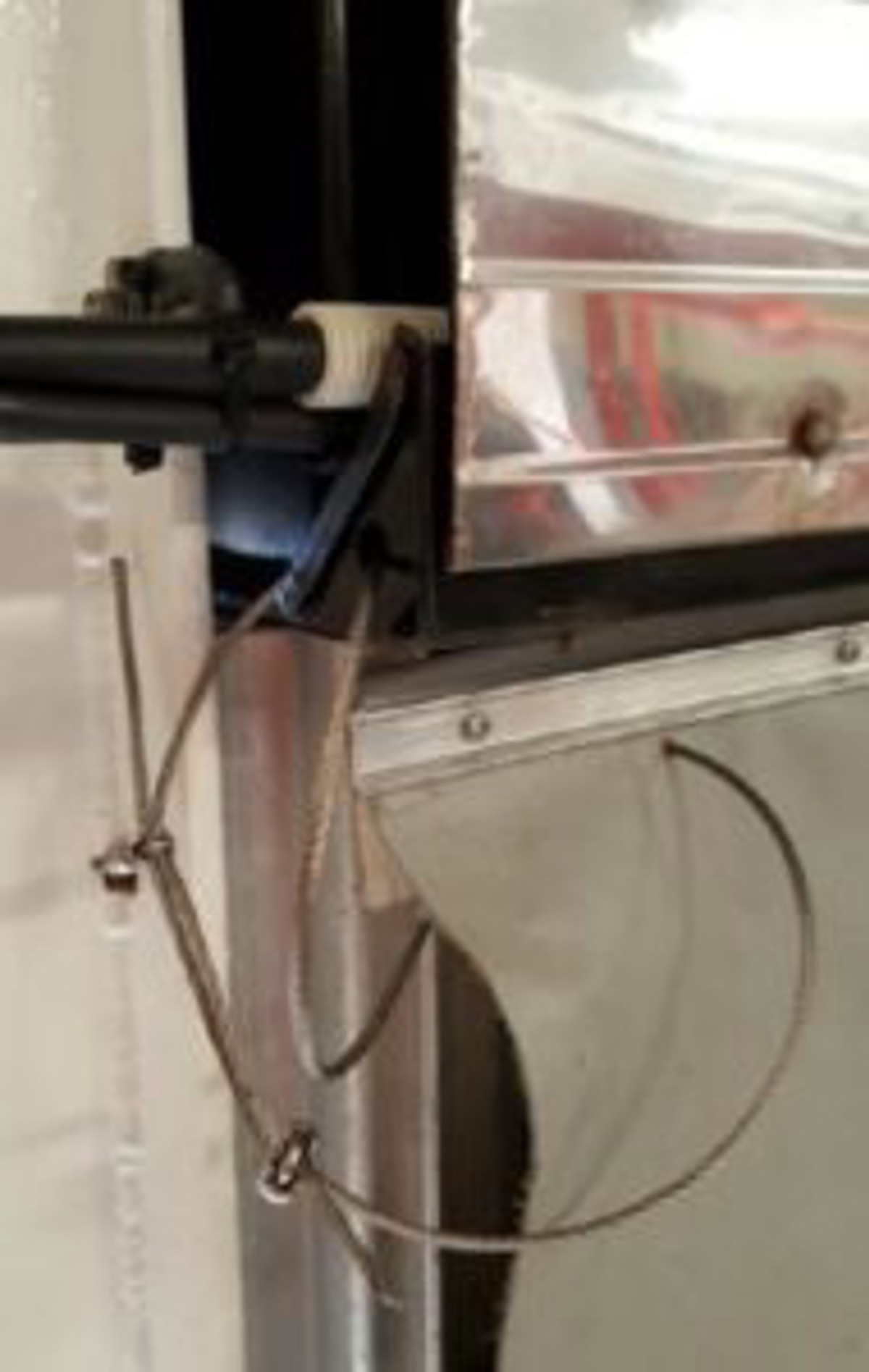Hangar door failure and collapse
- Safety Flash
- Published on 9 July 2018
- Generated on 27 February 2026
- IMCA SF 14/18
- 2 minute read
Jump to:
Whilst a vessel was working, there was a failure and collapse of the moonpool hangar doors.
What happened?
Deck crew were working in the area of the moonpool, when they heard a loud bang. When they turned around they could see that the hangar door had fallen down and folded in the guide rails. The door was 7.2 metres wide, 13 metres high and weighed approximately 200 kg. There were four crew members in the hangar at the time of the incident.

What went wrong? What were the causes?
The suspension points for the hangar door leaf had failed.
The causes were:
- Inadequate and weak design for holding hangar door leaf to head box.
- Increased wear and tear because there were no formal instructions or procedure for the operation of the hangar door.
- Possible additional wear and tear due to suction from the moonpool.
- Hangar doors were not part of the recommended planned maintenance system (PMS), and it was not possible to inspect the suspension points holding the door leaf.

What lessons were learned?
- Highlight the importance of knowing the operational limitations or requirements for any equipment.
- Ensure that personnel operating equipment (e.g. hangar doors) are properly familiarised with it.
- Consider further possible risk of potential dropped or falling objects, especially where inspection of condition is not possible.
What actions were taken?
- Implemented proper instructions for the operation of hangar doors and updated familiarisation.
- 6mm stainless steel flat bar was installed inside an aluminium profile holding the folding door to header box in order to make the construction more rigid and solid.
- Installed safety lashings to prevent the folding door upper mount from falling to deck if overloaded.
Related Safety Flashes
-
IMCA SF 08/03
3 July 2003
IMCA Safety Flashes summarise key safety matters and incidents, allowing lessons to be more easily learnt for the benefit of the entire offshore industry.
The effectiveness of the IMCA Safety Flash system depends on the industry sharing information and so avoiding repeat incidents. Incidents are classified according to IOGP's Life Saving Rules.
All information is anonymised or sanitised, as appropriate, and warnings for graphic content included where possible.
IMCA makes every effort to ensure both the accuracy and reliability of the information shared, but is not be liable for any guidance and/or recommendation and/or statement herein contained.
The information contained in this document does not fulfil or replace any individual's or Member's legal, regulatory or other duties or obligations in respect of their operations. Individuals and Members remain solely responsible for the safe, lawful and proper conduct of their operations.
Share your safety incidents with IMCA online. Sign-up to receive Safety Flashes straight to your email.